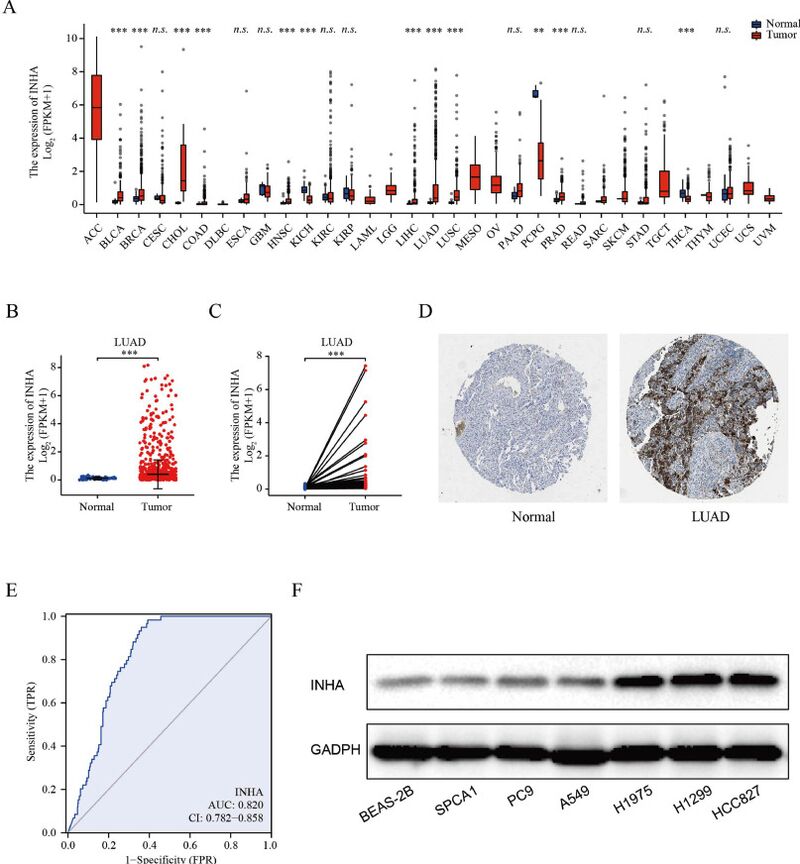Usage of the Human Protein Atlas (HPA) database to examine INHA protein levels in lung carcinoma
Article: "INHA acts as a novel and potential biomarker in lung adenocarcinoma and shapes the immune-suppressive tumor microenvironment"
INHA: a novel potential diagnostic indicator for lung carcinoma (LUAD).
INHA emerges as a promising diagnostic marker for lung adenocarcinoma (LUAD). Elevated expression of Inhibin A (INHA) is observed in several human cancers, including high-grade prostate, ovarian, adrenal, gastric, and pancreatic tumors, as well as colon cancer and melanoma. While the correlation between INHA expression and the development, growth, and progression of various cancer types is established, its specific biological role in patients with lung adenocarcinoma remains to be elucidated.

In a recent investigation featured in Translational Oncology (2023), researchers utilized data from the Human Protein Atlas (HPA) database to analyze INHA protein levels in lung carcinoma. The study unveils a notable elevation in INHA protein levels within lung carcinoma in contrast to normal tissues.
The observed overexpression of INHA in lung carcinoma is associated with an adverse prognosis, underscoring its potential as both an immunotherapeutic target and a predictive biomarker in the context of lung adenocarcinoma. This discovery emphasizes the clinical significance of INHA and its role in shaping potential diagnostic and therapeutic strategies for individuals affected by lung carcinoma.
Zhang X, Zhang X, Jiang D, Zheng W, Wang H, Tian Y, Cheng B. INHA acts as a novel and potential biomarker in lung adenocarcinoma and shapes the immune-suppressive tumor microenvironment. Transl Oncol. 2023 Jul;33:101679. doi: 10.1016/j.tranon.2023.101679.
